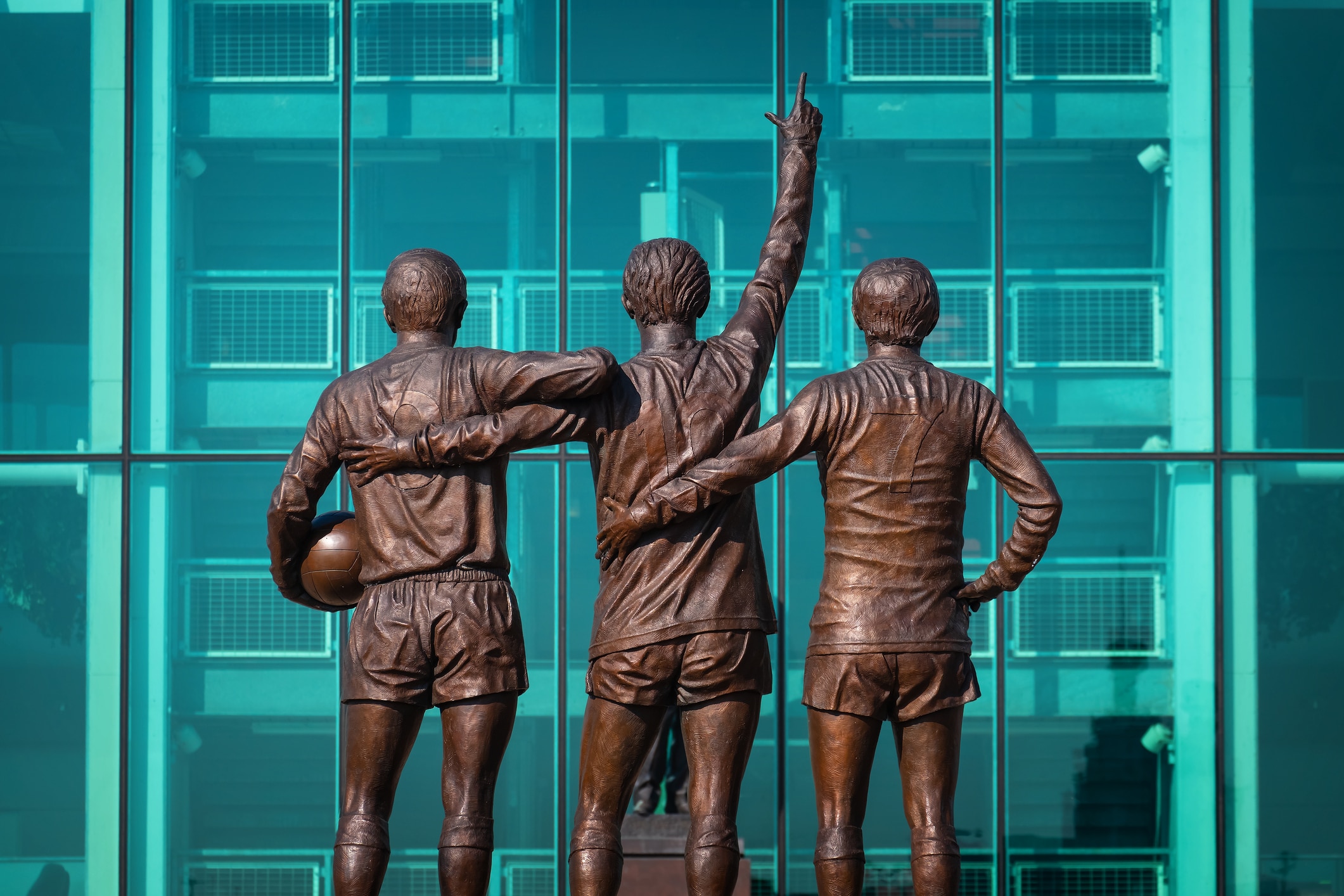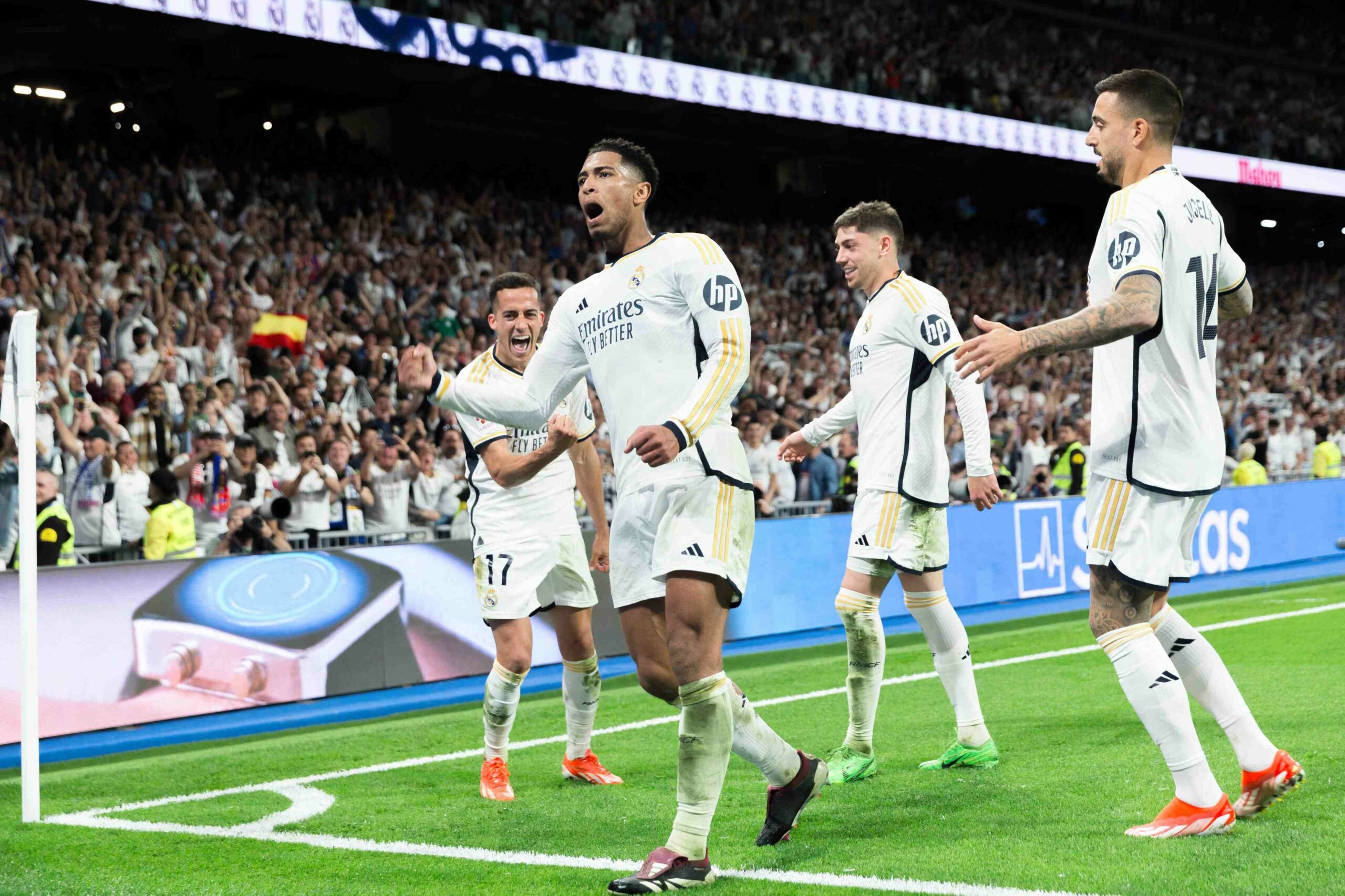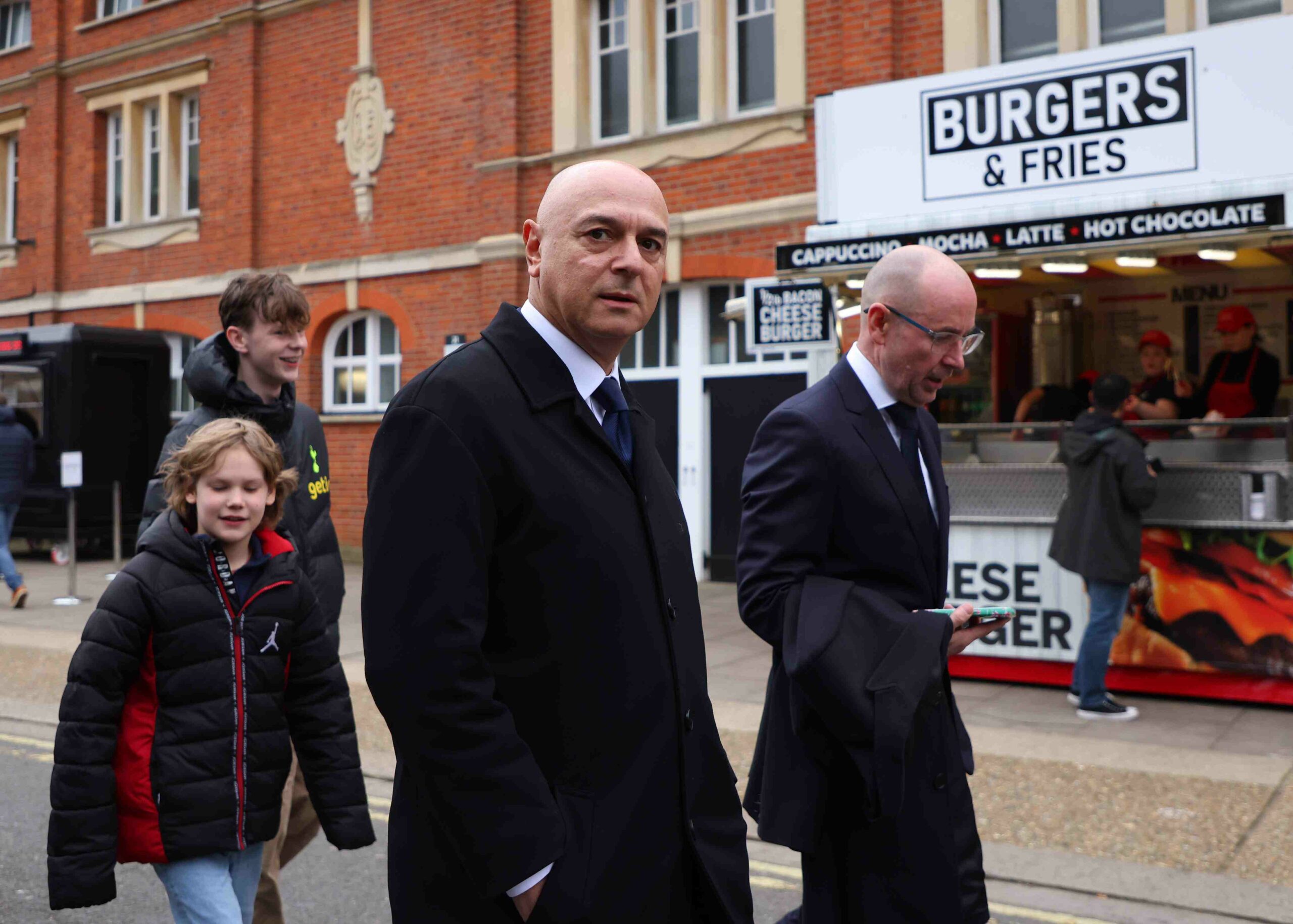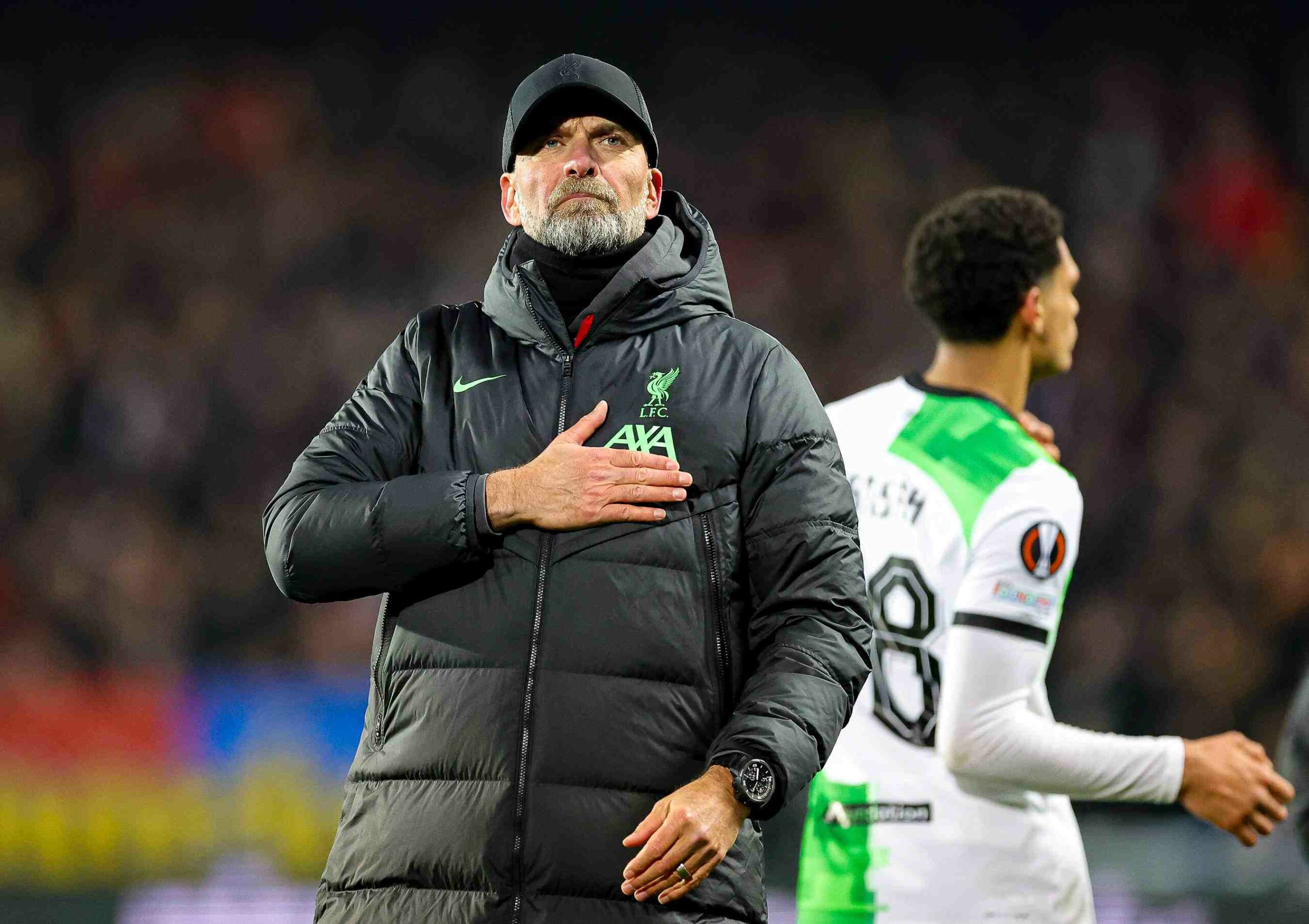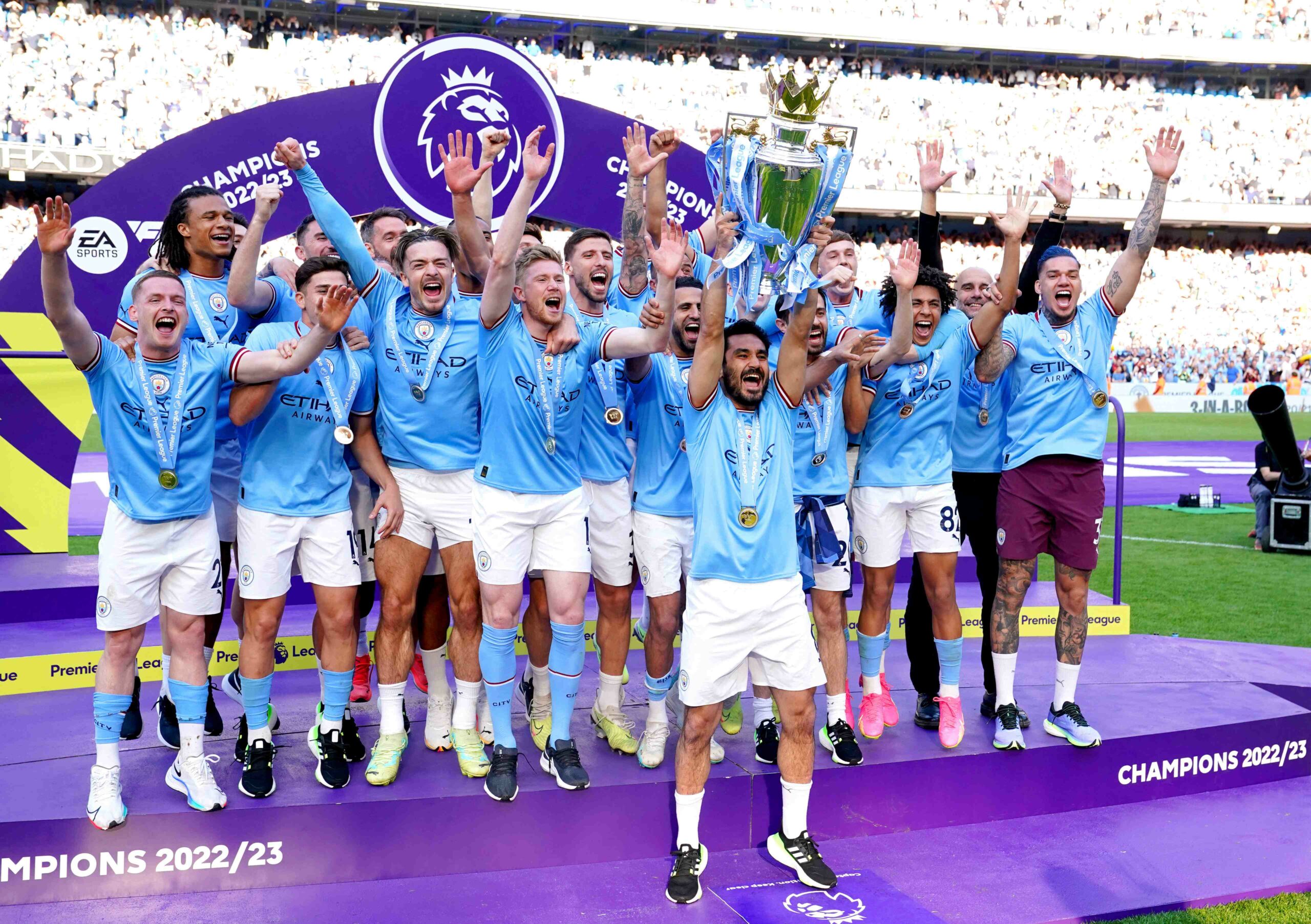English Football is At Top Form-Will We See Another English Ballon d'Or Winners
England’s international success during the European Championships over the recent years, and the success of English clubs in the Champions League, is constantly raising hopes that we will see one more player added to the prestigious list of English Ballon d’Or Winners.
In recent years, except for Luka Modric’s win in 2018 and Karim Benzema, the Golden Ball has been circulated between Lionel Messi and Cristiano Ronaldo; however, that duopoly is likely to end this year with changes made to judging rules.
In 2022, the Ballon d’Or went to the one person that deserved it the most- Karim Benzema, who had a phenomenal season and led Real Madrid to win five titles that year, including a win over Liverpool in the final.
Harry Kane and Marcus Rashford are the names that all English football fans are thinking of as the best English footballers, at least for the 2022/23 season, with Phill Fodden showing sparks as someone who could challenge them. But it is highly unlikely that they will win the award this year.
Have there been any previous British winners of the Ballon d’Or?
There have been six previous winners of the Ballon d’Or from the British Isles, one of which won the award in two consecutive years and another of whom won the very first award in the mid-1950s. They are:
Most updated list of English Ballon d'Or Winners
Stanley Matthews 1956 (Blackpool and England)
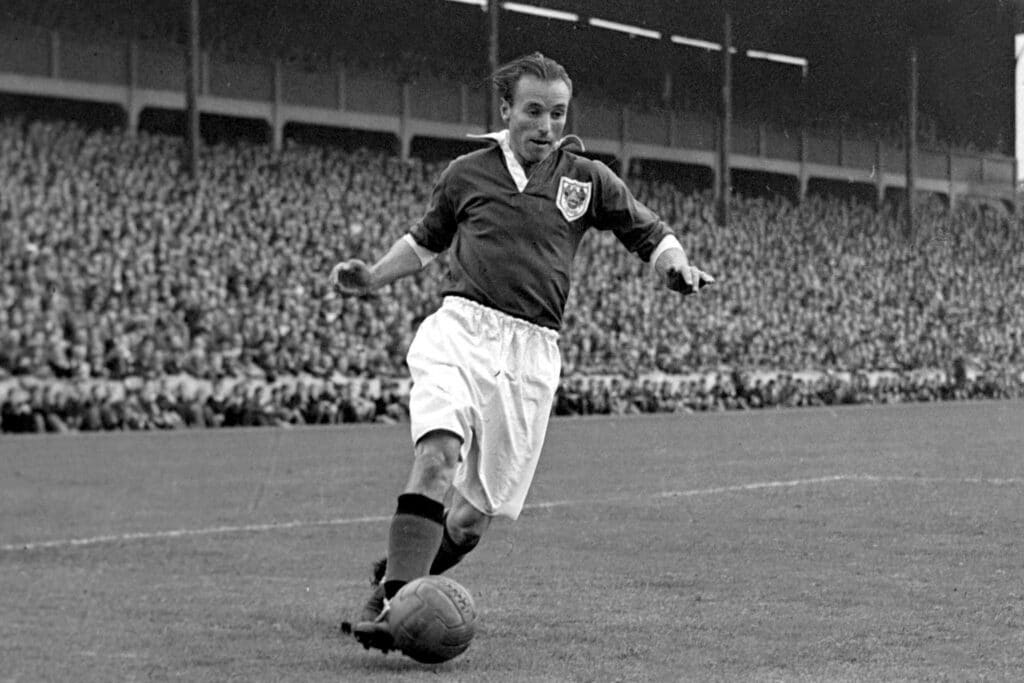
Stanley Matthews 1956 Ballon D’or winner (source: Imago)
By modern standards, where the award goes to players that have scored at least a goal-per-game, the choice of English wing-wizard Sir Stanley Matthews appears odd at first glance.
In 1955/56, he made 36 appearances in the English top-flight, scoring just three goals, which at first glance, signifies nothing special. Blackpool won no significant honours, and Matthews scored just once for England in a Home International match against Northern Ireland with his first international goal in almost eight years.
Dig a little deeper, though, and the reasons behind Matthews’ selection become more apparent.
Matthews was 41 years old and had made his league debut for Stoke City a quarter of a century previously. In addition, his influence on proceedings showed no signs of slowing down. Blackpool achieved their best league finish as runners-up to Manchester United, and Matthews continued to run matches single-handedly from the right flank.
There was no sign of him moving back to full-back or centre-half as many players did in the autumn of their career. Indeed, it would be difficult to argue that Matthews was in the autumn of his career, as he continued as a First Division player until the 1964-65 season when he was 50.
The esteem in which Matthews was held can be seen by the fact that he finished ahead of players of the calibre of Alfredo Di Stéfano- one of the best playmakers at the time, Raymond Kopa, Ferenc Puskás and Lev Yashin to the first Ballon d’Or award.
Denis Law 1964 (Manchester United and Scotland)
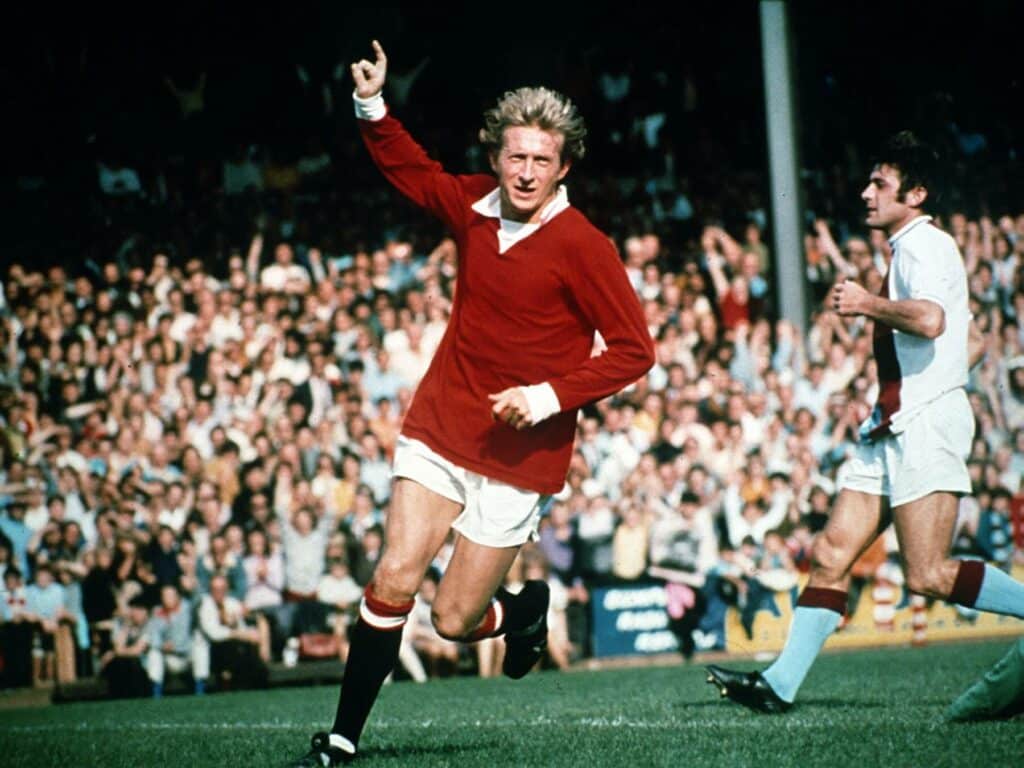
Denis Law- Man United legend (source-Imago)
Law was 22 when he returned to Manchester after a season at Italian club Torino in 1962. The Italian club had spent a record £110,000 on the Scottish striker from Manchester City. Although he’d been a moderate success, scoring ten goals in the ultra-defensive Serie A, Italian football wasn’t for him, and he moved to Old Trafford.
Law had proven among the finest goalscorers in European football within two years. During the 1963/64 season, such was his form in front of goal that he was selected to play for the Rest of the World XI against England at Wembley Stadium. Law scored but was on the losing side as England won 2-1. He would describe this match as the most incredible honour in his career.
Just watch these highlights, superb.
Although Law collected a four-week suspension for a sending-off against Aston Villa, he regularly hit the back of the net. His 46-goal haul remains a Manchester United record for a single season. Unfortunately for the Old Trafford faithful, that was not enough for the club to collect silverware.
Towards the end of 1964, with Law once again leading the First Division goalscoring charts (he would go on to score 28 as United picked up the league title), he became the second British player to be awarded the Ballon d’Or, eclipsing the Spanish duo of Luis Suárez of Inter and Amancio of Real Madrid.
Law remains the only Scottish player to have gained the Ballon d’Or and is one of the youngest to have won the award. His total of 237 goals for Manchester United has been bettered only by Bobby Charlton and Wayne Rooney.
10-years after winning the Ballon d’Or, Law’s Manchester City side visited Old Trafford with United in desperate danger of relegation. In the 81st minute, his back-heeled effort gave City a 1-0 lead. Law refused to celebrate the goal, and as he was substituted, he left the field at Old Trafford with his head bowed.
Bobby Charlton 1966 (Manchester United and England)
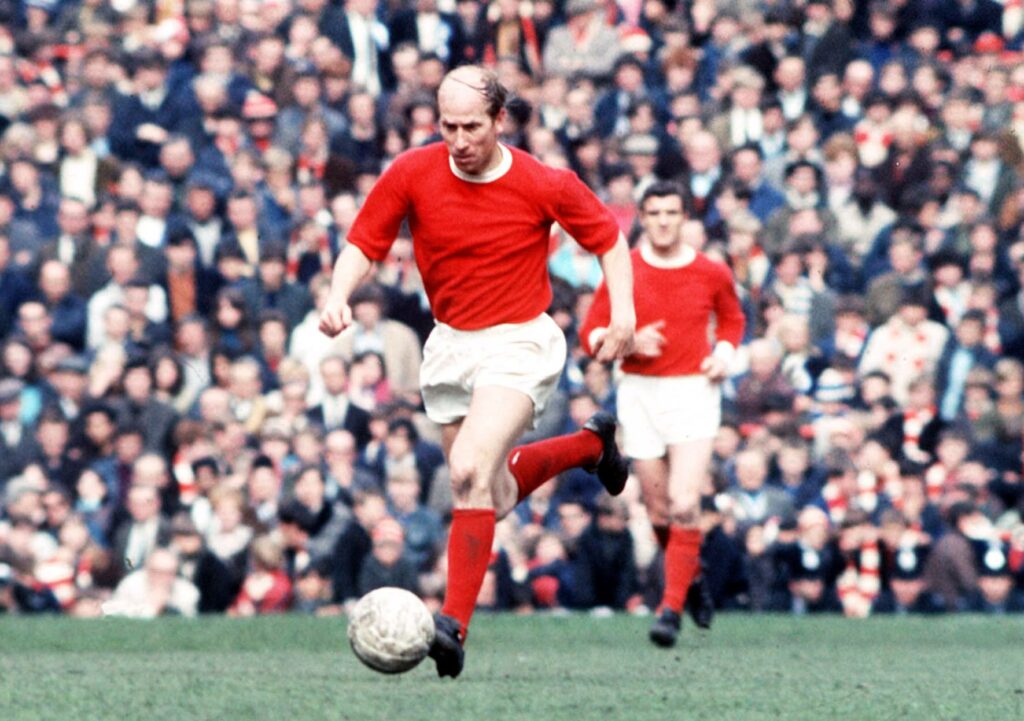
Bobby Charlton Ballon d’Or 1966 (source-Imago)
Bobby Charlton was 29 when he won the Ballon d’Or in 1966, the year that England won the World Cup. Although Manchester United failed to win a trophy, Charlton had an outstanding individual season with both club and country.
One of the survivors of the Munich air crash in 1958, Charlton progressed to become one of the greatest players in Manchester United and England’s history. An attack-minded midfielder who could score goals with either foot, from close in or distance, and with his head, he quickly established himself in the national team.
He got his first call-up two months after the Munich crash, scoring in a 4-0 win over Scotland at Hampden Park and went on to become England’s leading scorer until Wayne Rooney beat his record.
In 1965/66, Charlton scored 18 goals in all competitions for Manchester United, including 16 in the First Division, as Manchester United finished fourth and reached the semi-final of the European Cup, where they beat Eusebio’s Benfica 8-3 on aggregate in the quarter-final before succumbing to Partizan Belgrade in the last four.
Charlton was instrumental in England’s march to the World Cup final, in which they defeated West Germany 4-2. He scored his first goal in the tournament in a 2-0 win over Mexico in the group stage, but in the semi-final against Portugal, he came to the fore.
After opening the scoring with a neat side-footed finish into an empty net from the edge of the penalty area, Charlton sealed England’s place in their only World Cup final with a sweetly struck effort from the edge of the penalty area into the bottom corner.
That was enough for Charlton to edge Eusébio by a single vote in the Ballon d’Or poll and become the second Englishman to win the award. Charlton also won the Football Writers’ Association Footballer of the Year in England for the first time and the FIFA World Cup Golden Ball. In 1967 and 1968, Charlton would go on to finish second in the voting for the Ballon d’Or.
George Best 1968 (Manchester United and Northern Ireland)
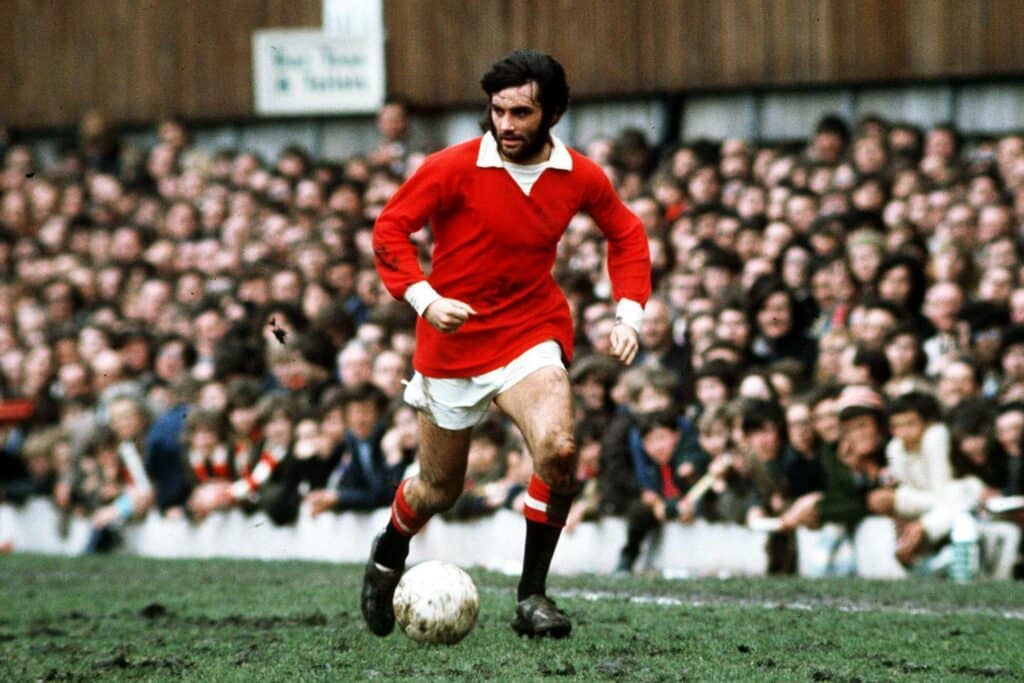
George Best form Manchester United- Ballon d’Or winner 1968 (source: Imago)
Manchester United’s mercurial winger, George Best, was only 22 years old when he was awarded the Ballon d’Or in 1968, making him one of the youngest ever winners of the award.
Although the Red Devils were pipped to retain their First Division title by Manchester United, a defeat at Old Trafford proved costly, as did a 6-3 loss to West Bromwich Albion near the end of the campaign. Best, however, was in the form of his life and was the joint top scorer in the First Division with 28 goals.
It was in the European Cup, though, where Best came to the fore. He scored the winner at Old Trafford against Yugoslav champions FK Sarajevo in the 2nd round, which was the crucial goal that separated them from Real Madrid in the semi-final.
In the first leg at Old Trafford, Best received a cut-back inside the penalty area and steadied himself to lash the ball into the roof of the net to give United the advantage ahead of the second leg. A 3-3 draw at the Bernabéu saw United through to their first European Cup final.
They took on Portuguese giants Benfica at Wembley Stadium, and with the game poised at 1-1 in the first period of extra time, Best took the game by the scruff of the neck. Finding himself through on goal, he calmly sashayed past the Benfica goalkeeper, rounded him and slipped the ball into the net to give United the advantage.
Although Bobby Charlton scored twice in that final to help United become the first English winner of Europe’s premier club competition, Best beat his teammate to the Ballon d’Or. Best won the FWA Footballer of the Year in the same season and finished third in the Ballon d’Or vote in 1971.
Kevin Keegan 1978 & 1979 (Hamburger SV & England)
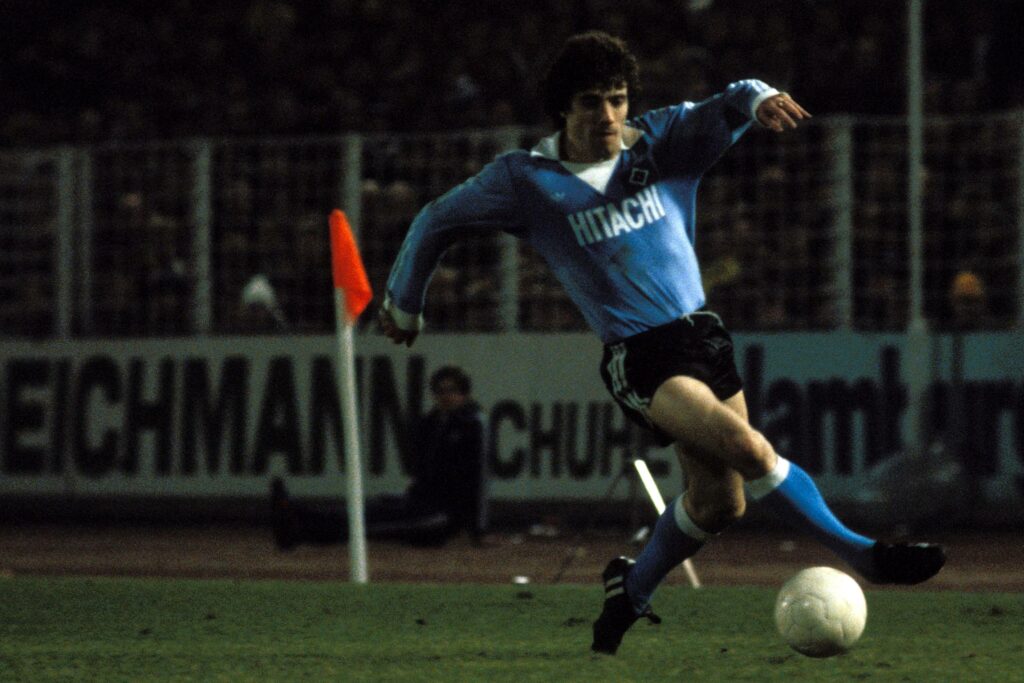
Kevin Keegan 1979 Ballon d’Or Winner (source: Imago)
Keegan moved from Liverpool to the German side Hamburg in the summer of 1977 after the English giants had won the European Cup and First Division title. He had long talked about his intention to play abroad, and the Bundesliga side won the race for his signature for a German record fee of £500,000.
The 1977 Ballon d’Or vote had seen Keegan miss out on Danish midfielder Allan Simonsen, but his spell in Germany would see him go one better not once but two years running.
His first season in Germany was difficult. He struggled to settle into German life, and it took time for him to be accepted by his new teammates. In a friendly during the winter break, he was sent off for retaliation and suffered an eight-week ban.
After deciding to learn German and integrate himself more during that period, Keegan’s form improved markedly. He ended his first campaign in Germany with 12 goals and a place in Kicker Magazine’s Bundesliga Team of the Season.
Even though Hamburg finished 10th in the Bundesliga, his star was shining so brightly that he had been awarded the Ballon d’Or ahead of Hans Krankl of Barcelona and Rob Resnenbrink of Anderlecht.
The following season saw Hamburg improve under the tutelage of Branko Zebec and Keegan, by his own admission, work as hard as he’d ever done in his life.
Keegan flourished and scored 17 goals in 34 league games as Hamburg won their first Bundesliga title in 19 years. Once again, his efforts were rewarded with a second Ballon d’Or award, joining Alfredo Di Stéfano, Franz Beckenbauer and Johan Cruyff in winning the award more than once.
After shaking off offers from Juventus and Real Madrid, Keegan saw out the final year of his contract in Germany, helping Hamburg to the European Cup final for the only time in their history. Unfortunately for him, Brian Clough’s Nottingham Forest stood in the way, and John Robertson’s goal gave Forest a 1-0 win in Madrid.
Keegan moved onto Southampton in 1980, leaving Hamburg as a cult hero.
Michael Owen 2001 (Liverpool and England)
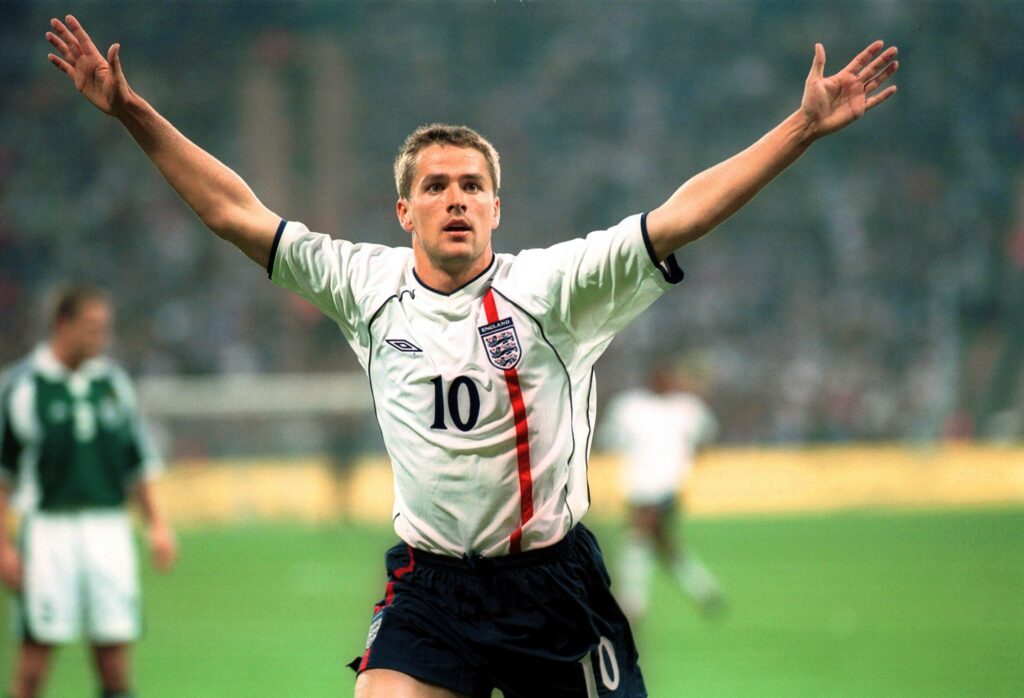
Michael Owen ballon d’or Winner 2001 (source: Imago)
With the benefit of hindsight, it’s easy to forget just how explosive and feared a footballer Michael Owen was during his years with Liverpool. After leaving Anfield in 2004, he only managed double figures in a league campaign twice over the next nine years, as injuries took their toll on a player who was once England’s bright young thing, and his career petered out to a conclusion at Stoke City.
The 2000/01 season was Owen’s most successful by some distance, as he helped Liverpool to a unique treble of both English domestic cups and the UEFA Cup. During the campaign, he scored 24 goals for Liverpool and six in eight England matches.
The first of his two most memorable performances came in the FA Cup Final against Arsenal at the Millennium Stadium in Cardiff. With Liverpool 1-0 down to Arsene Wenger’s marauding side and hanging on, Owen suddenly turned the clash on its head in five second-half minutes.
Firstly, he seized on a poor clearance from a free-kick to pivot and volley home past David Seaman on 83 minutes. Five minutes later, he latched onto a long ball from Patrik Berger down the inside left channel, outpaced two defenders and fired low across Seaman into the far bottom corner of the net. Two virtuoso strikes gave Liverpool their first FA Cup triumph since 1992.
His second high-class performance came in Munich in a World Cup Qualifier between Germany and England. With England needing a win to keep their hopes of automatic qualification alive, Owen led the German defence of Christian Worns, Thomas Linke and Jens Nowotny a merry dance as he completed the most clinical of hat-tricks in a 5-1 win.
At this point, as Owen became the second-youngest Ballon d’Or winner in history in 2001, it looked like he would dominate European football for the next decade. Although he had three further prolific seasons at Anfield and with England, the regularity and severity of injuries increased. After a fair season at Real Madrid, his star had faded by the time he returned to England in 2005 with Newcastle United.
